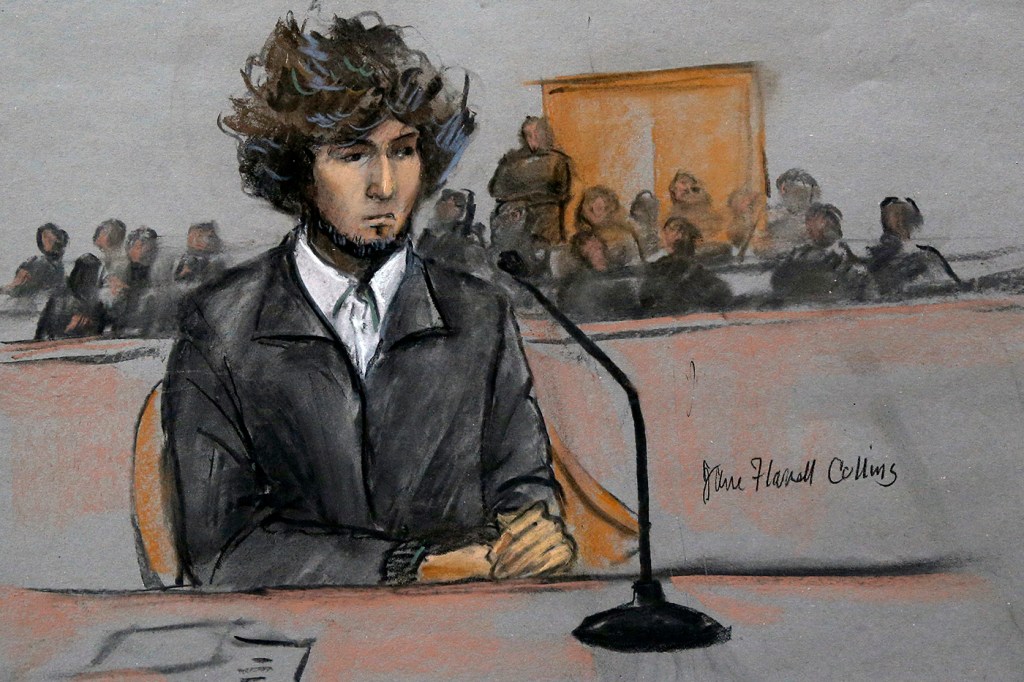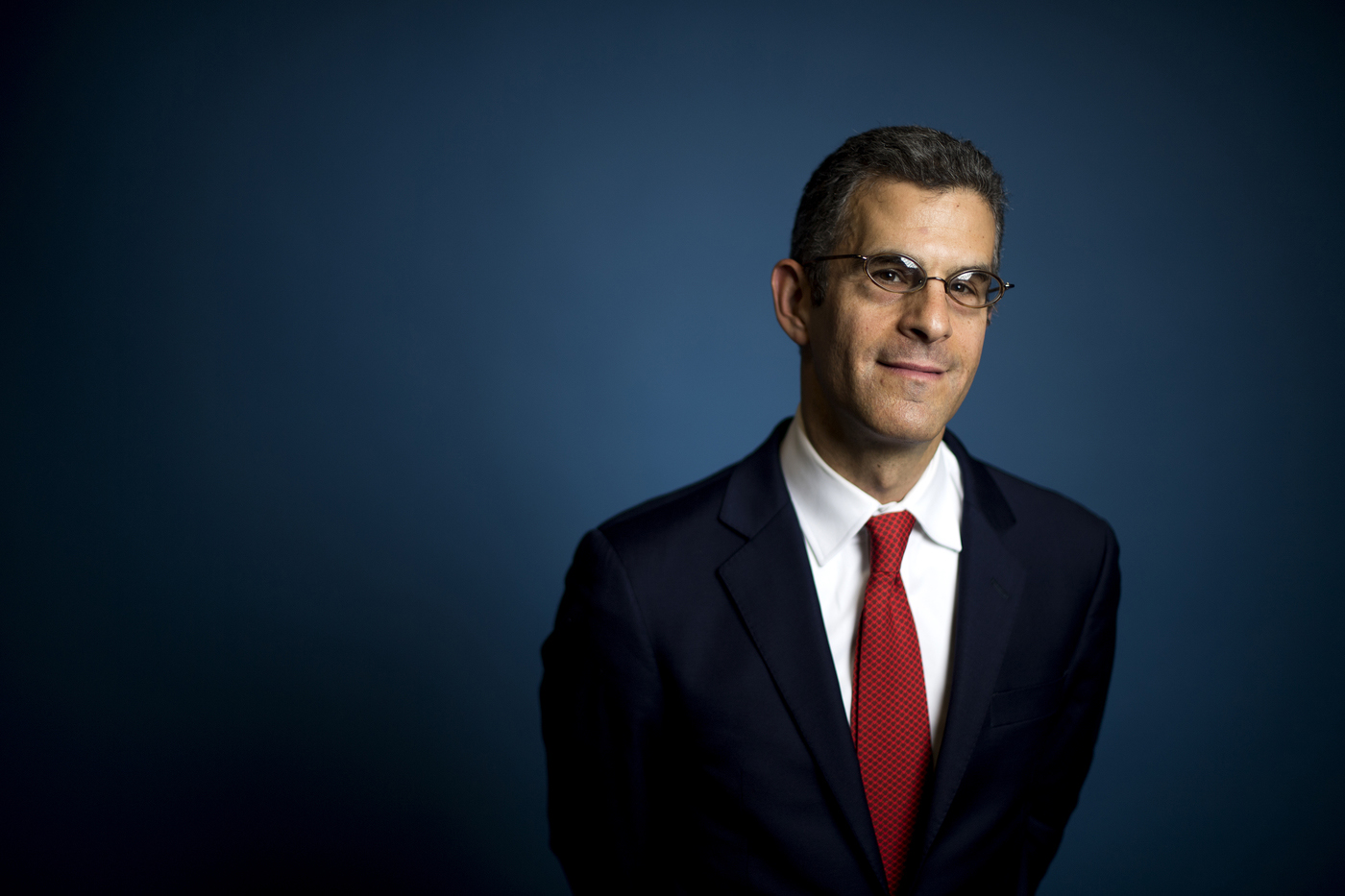Here’s why two Northeastern law professors believe a new jury should decide the fate of Boston Marathon bomber Dzhokhar Tsarnaev

Two Northeastern law professors are among eight prominent Boston citizens who say that a new jury outside of the city should decide the fate of Dzhokhar Tsarnaev, who was sentenced to death in 2015 for his role in the Boston Marathon bombings.
Michael Meltsner, the George J. and Kathleen Waters Matthews Distinguished University Professor of Law at Northeastern, and Daniel Medwed, a University Distinguished Professor of law and criminal justice, argue that Tsarnaev’s trial should not have been held in Boston, where, they say, he could not have received a fair trial.
While neither lawyer questions Tsarnaev’s guilt, they said that the bombing and the subsequent manhunt for Tsarnaev had such a profound effect on the city of Boston that it was impossible to find a panel of jurors who would make decisions dispassionately.
“It’s a slippery slope when we start compromising our principles in the short term,” Medwed said. “This is my fundamental principle as a lawyer: The hallmark of a civilized society is the extent to which we give our most reviled members protection.”
Meltsner and Medwed recently signed onto an amicus brief submitted on the behalf of Tsarnaev to the United States Court of Appeals for the First Circuit in Boston. Other prominent Boston lawyers signed on as well, including a former state Supreme Judicial Court associate justice.
“We have come together because we believe the court… made a grievous error in insisting the trial be tried in Boston,” the amicus brief reads.
Tsarnaev admitted to his role in the April 15, 2013 bombing at the Boston Marathon that killed three people and injured 260 more. He was convicted in May 2015 of 30 criminal counts against him—17 of which carried the possibility of execution—and sentenced to death.
His attorneys appealed the sentence in December 2018, arguing that it was impossible to find an impartial jury from a city so deeply traumatized by the bombings.
Here, Meltsner and Medwed explain in greater detail why they signed onto the amicus brief.
What were the legal criteria you weighed in deciding whether to sign the amicus brief?
Meltsner: What’s really at issue here is the sentence. The argument from this amicus brief is that the jury should not have been one chosen from a place where such an incredibly traumatic event took place.
[U.S. District Judge George O’Toole] rejected a motion [before the trial] to change the venue. He believed the normal process of voir dire, of questioning jurors, would allow him to impanel an impartial jury. We have a constitutional right to a change of venue when the jury system can’t produce an impartial, unbiased panel of jurors, and our brief argues that this is an extraordinary situation where a community was so traumatized that the voir dire process was unable to operate properly.
This situation is not like the usual change-of-venue cases, where at most a juror or two in the array has had some contact with news coverage, or expresses some prejudice. Here, everybody in the area was, understandably, subject to an incredible barrage of press, was asked to shelter in place after the bombing, saw more than 10,000 National Guardspeople enter—this was not a situation where you could pick out the one or two biased jurors.
Medwed: In many respects, I’ve been troubled by the death sentence Tsarnaev received. Not the guilty verdict, but the death sentence.

Daniel Medwed. Photo by Matthew Modoono/Northeastern University
My perception has long been that Boston was in such a hot state, the community was understandably upset, and that that hadn’t susbsided in the two years before the trial. It wasn’t possible for [Tsarnaev] to have a fair trial because of the passion engendered by the crime.
It was pretty clear during the jury selection that there were many jurors who were impaneled who had strong opinions about the case; it was impossible to find jurors who didn’t have a pre-existing view of the case before they sat in the box.
This brief isn’t suggesting anything to do with factual innocence, it’s about the process, about the fairness of the process. This is my fundamental principle as a lawyer: The hallmark of a civilized society is the extent to which we give our most reviled members protection.
Couldn’t another jury still sentence Tsarnaev to death?
Meltsner: The amicus brief just simply presents the overwhelmingly powerful case of why this should not have taken place in Boston.
A new jury could impose a death sentence, too, but it wouldn’t carry the taint of prejudice of some sort entering the discussion of whether or not he should be executed.
I feel that even if the law permits capital punishment, it ought to be a decision that’s not influenced by the kind of trauma the community of Boston, understandably, experienced.





